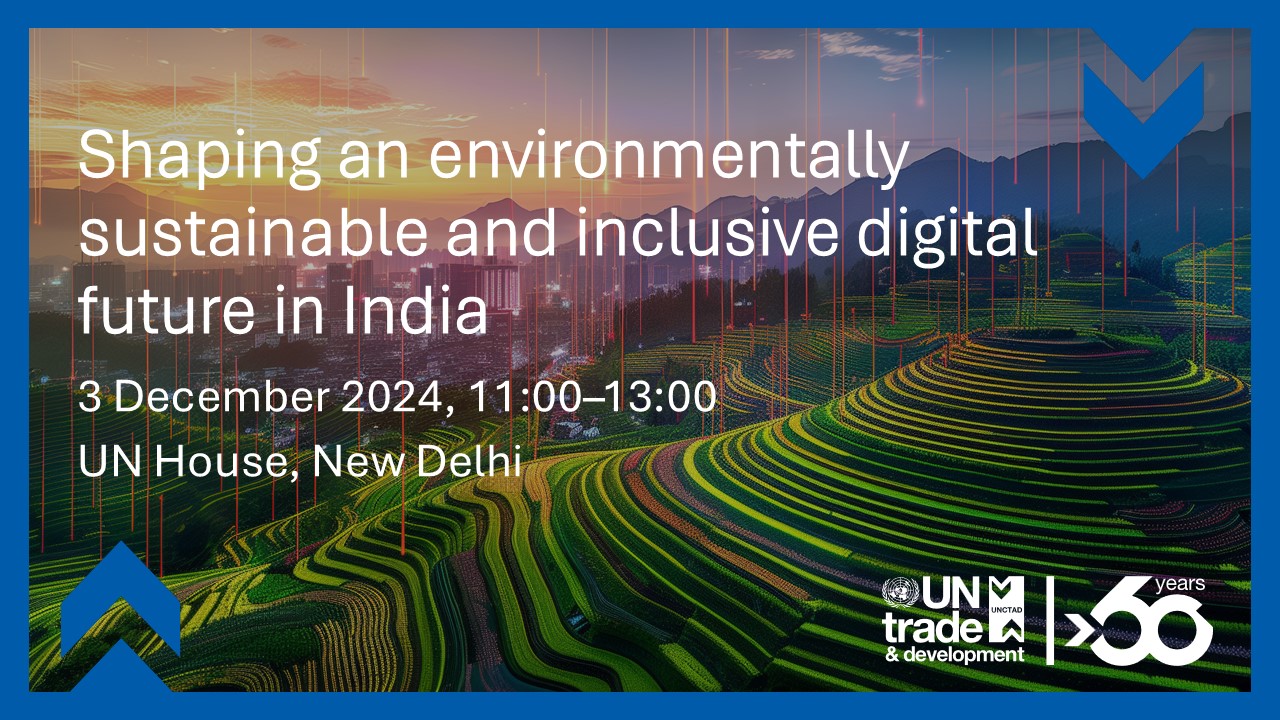For India, the transition to digital technologies represents both opportunities and challenges. As one of the world’s fastest-growing digital economies, India is poised to lead the expansion of 5G networks, with forecasts indicating it will account for a significant share of global 5G subscriptions by 2029. Additionally, India’s roll out and championing of digital public infrastructure has leveraged digitalization to significantly improved inclusiveness by providing millions with access to identity verification, financial services and other essential digital resources, driving both economic growth and social equity.
At the same time, rapid digitalization has an expanding environmental footprint. In 2020 alone, the global ICT sector emitted between 0.69 and 1.6 gigatons of CO2 equivalents, representing 1.5–3.2 per cent of total global greenhouse gas (GHG) emissions. With the growing number of end-user devices, the boom of artificial intelligence and cryptocurrency mining, this figure is only expected to rise.
The Digital Economy Report 2024 highlights the urgent need for sustainable strategies throughout the life cycle of digitalization. The rapid pace and expanding scope of digitalization make it increasingly important to understand the relationship between digitalization and environmental sustainability. From depletion of finite raw materials for digital and low-carbon technologies, escalating water and energy consumption during use and the growing issue of digitalization-related waste, the report explores the nature and scale of the sector’s environmental footprint, which remains largely unassessed.
The report highlights the significant environmental impacts of digital technologies, through end-user devices, data networks and data centres. As the demand for data-centre services rises, including in India, concerns about their environmental footprint and the need for better water use and recycling practices become crucial.
Moreover, the rapid growth of digitalization-related waste presents management challenges and poses health and environmental risks. The report emphasizes the need for international collaboration to promote a circular digital economy through sustainable practices, skills development and formalized waste management. It also stresses the importance of further digitalization in many developing countries.
Objective
This event will bring together stakeholders to discuss how India can balance economic growth with environmental sustainability. As India emerges as a global digital leader, it faces unique challenges in securing critical minerals, managing rising energy and water demands and addressing digitalization-related waste.
The event will include a presentation of the Digital Economy Report 2024, followed by a panel discussion to explore how India can leverage its digital growth for sustainable development, promote circular economy models within the country and internationally and develop policies that align with its environmental and economic goals.


